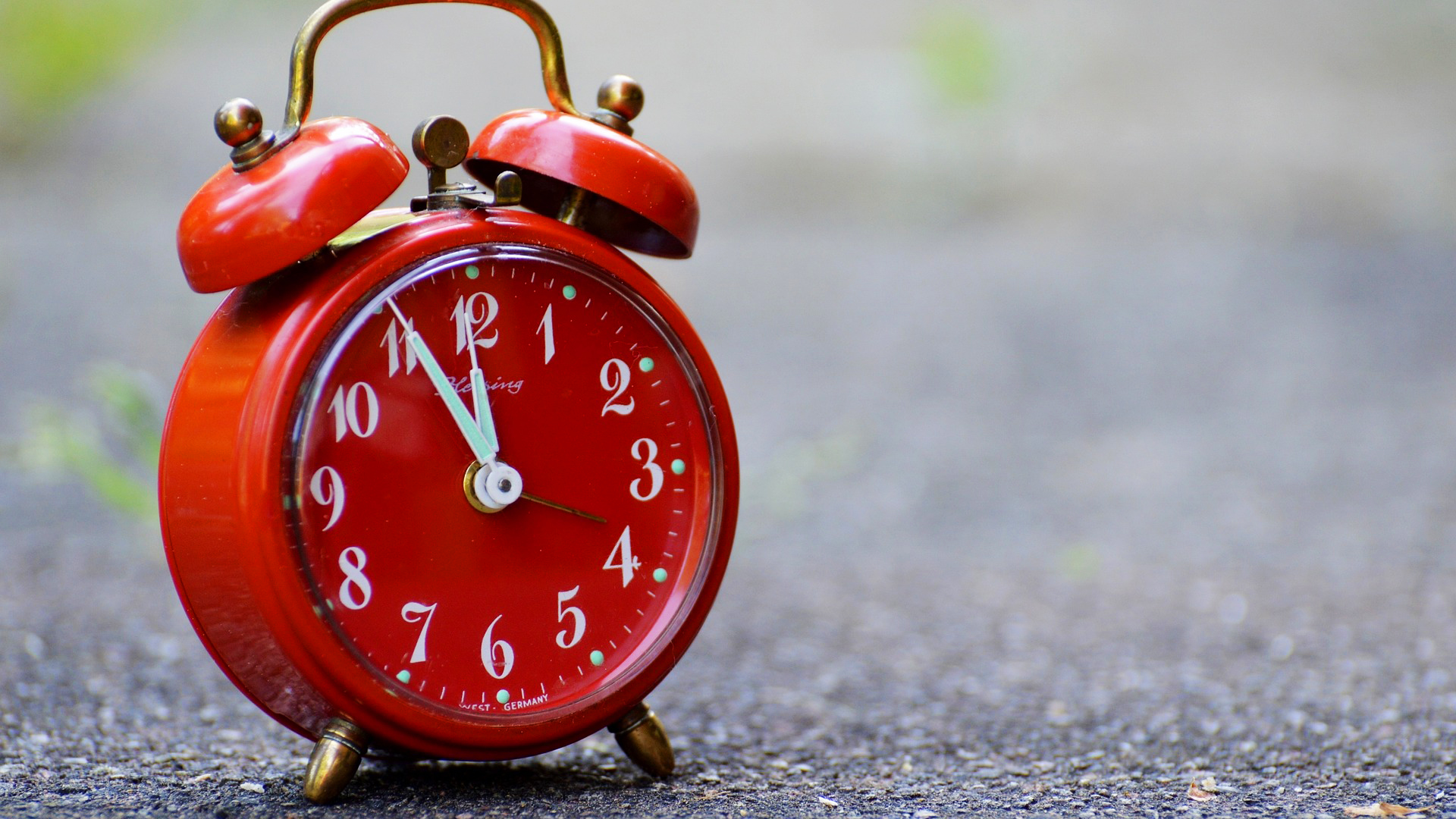
What time do you get up?
Powered by RedCircle
>Hello and welcome to Learn English Vocabulary. My name is Jack and I’m making this podcast for you to learn or revise English vocabulary.
Introduction
Today, I want to talk about my daily routine and look at some questions you can ask people about their routines and some verb-noun collocations. I’m going to do this in the form of an interview. The language I focus on in this podcast is aimed at B1, though much of it will be revision. I have added some more advanced phrases too.
So the first question is what time do you get up? There are only a few question forms in English. This one, a question form, auxiliary verb, subject, verb question is very common. In these questions, the auxiliary verb and subject connect together. Do you becomes /djə / or /ʤə/.
Examples
Listen to the question:
What time do you get up?
What time do you get up?
Interview
Listen to the first part of the interview now.
Michael: What time do you get up?
Jack: Erm, well … normally, I get up at about 7.30. I usually work quite late and I’d like to get up later, but I’ve got kids and they are up early.
Michael: 7.30’s not that early.
Jack: I know. I used to start work at 7 when I worked in Indonesia. No. Actually, I got picked up at 7. I guess I got to work about 7.30.
Michael: And what time do you start work now?
Jack: Well, now, I work from home. So it depends. I’ll usually check my email first thing, but then if there’s nothing wrong, I’ll have some breakfast and do some exercise before I start work. This week, I’ve been staring early, but not today.
Michael: Why not today?
Jack: Today was my boys first day back at school and my youngest’s first day in reception so I went with them to drop them off.
Language focus
Let’s look at some of the language.
Wake up and get up are very similar. Wake up means stop sleeping. Get up means get out of bed. My alarm clock goes off at 7 so I usually wake up around 7, but I don’t get up till half past seven,
Other phrases for talking about morning routines are get dressed which means put clothes on. Have breakfast … notice we generally say have breakfast. You can say eat breakfast, but I think have breakfast is a bit more common. You can also have a wash, have a shower, have a shave, but brush your teeth. I also like to do some exercise in the morning before I start work.
The next question is when do you normally + a verb. This is the same form as the first question so the do you becomes /djə/ or /ʤə/. It sort of joins to the question word when:
When do you
When do you
Listen to the next part of the interview
Interview part 2
Michael: When do you normally start work?
Jack: Like I said, it varies, but normally, I’d say around 9. I’m working on a few different projects at the moment so I have to be careful with my time.
Michael: Do you take breaks during the working day?
Jack: Not really. I tend to work through most days. If I’m feeling tired in the afternoon, I might take a mid-afternoon tea break and see if I can get my wife to sit down for a chat with me, but a lot of the time, I’ve got so much to do that I pretty much stay at my desk all day.
Michael: What about lunch? When do you normally stop for lunch? You do stop for lunch, don’t you?
Jack: Sometimes I’ll stop. Sometimes, I’ll grab an oat bar and an apple and bring it back to my desk.
Michael: And what time do you knock off?
Jack: Again, it really depends how busy I am. Recently, I’ve been working till I hear a little knock at my door and it’s one of my boys calling me to dinner.
Michael: That’s not great.
Jack: No. I need to slow down a bit and be a bit more disciplined with my time.
Language focus 2
Let’s look at some of the language.
I said start work. I work from home so I don’t have to travel. My work starts when I turn on my computer. Most people don’t work from home so they might talk about the time they get to work. This is interesting. You can say you are at work when you are working, even if you work outside and not in a fixed place. If I was a police officer and wal king in the street somewhere and my friend phoned me up, I could say: sorry, I can’t come out, I’m at work. What’s interesting is as I work from home, I never say this. I can only say I’m working.
During the day, you can have a break or take a break. I think to take a break is slightly more common, but have a break is used a lot as well.
At lunchtime, you can have lunch. It’s normal to ask someone what time do you have lunch? In the interview, I asked: when do you normally stop for lunch? You can stop for a break as well. You could say: I think we should stop for a break and come back here in 10 minutes. It’s a bit more decisive than simply have a break.
To ask what time I finish work, I used the verb to knock off. This phrasal verb has many meanings. In this situation, it means to stop working for the day. It’s informal, but well used in British English.
I used three more bits of language that I’d like to highlight. I used Like I said, to stress that I was repeating something. Like I said earlier … Like I said this morning …
I said I tend to work through. To tend to something in his sense means to normally do something or regularly behave in a certain way, for something to be likely. So I tend to lose my keys if I don’t put them in a little bowl by the front door.
The last phrase is pretty much – this means very nearly, but it’s much more informal and I use it a lot. I pretty much use it all the time.
Listen to the whole interview again now to hear the language I’ve spoken about in context.
Interview repeated
Michael: What time do you get up?
Jack: Erm, well … normally, I get up at about 7.30. I usually work quite late and I’d like to get up later, but I’ve got kids and they are up early.
Michael: 7.30’s not that early.
Jack: I know. I used to start work at 7 when I worked in Indonesia. No. Actually, I got picked up at 7. I guess I got to work about 7.30.
Michael: And what time do you start work now?
Jack: Well, now, I work from home. So it depends. I’ll usually check my email first thing, but then if there’s nothing wrong, I’ll have some breakfast and do some exercise before I start work. This week, I’ve been staring early, but not today.
Michael: Why not today?
Jack: Today was my boys first day back at school and my youngest first day in reception so I went with them to drop them off.
Michael: When do you normally start work?
Jack: Like I said, it varies, but normally, I’d say around 9. I’m working on a few different projects at the moment so I have to be careful with my time.
Michael: Do you take breaks during the working day?
Jack: Not really. I tend to work through most days. If I’m feeling tired in the afternoon, I might take a mid-afternoon tea break and see if I can get my wife to sit down for a chat with me, but a lot of the time, I’ve got so much to do that I pretty much stay at my desk all day.
Michael: What about lunch? When do you normally stop for lunch? You do stop for lunch, don’t you?
Jack: Sometimes I’ll stop. Sometimes, I’ll grab an oat bar and an apple and bring it back to my desk.
Michael: And what time do you knock off?
Jack: Again, it really depends how busy I am. Recently, I’ve been working till I hear a little knock at my door and it’s one of my boys calling me to dinner.
Michael: That’s not great.
Jack: No. I need to slow down a bit and be a bit more disciplined with my time.
So there you have some language you can use to ask about and tell someone about your daily routine. Well, about some parts of it. If this were part of a lesson, I would ask you to work in pairs to ask and answer questions about your and your classmates’ routines, but this is a podcast so all I can do is ask some questions for you to answer in the comments section on Learn English Vocabulary.co.uk or on Apple Podcasts.
Questions
The questions are:
Question 1: What time do you get up?
Question 2: When do you normally start work?
Question 3: What time do you stop for Lunch?
Question 4: Do you go out for lunch or do you eat at your desk?
Question 5: What time do you knock off for the day?
If you have enjoyed this podcast, please leave me a comment or a review and don’t forget that you can read the transcript for this podcast and complete some language activities on LearnEnglishVocabulary.co.uk.
Thanks for listening.





1 Comment
MAJID POURKARIMI
Thank you Jack 🙂